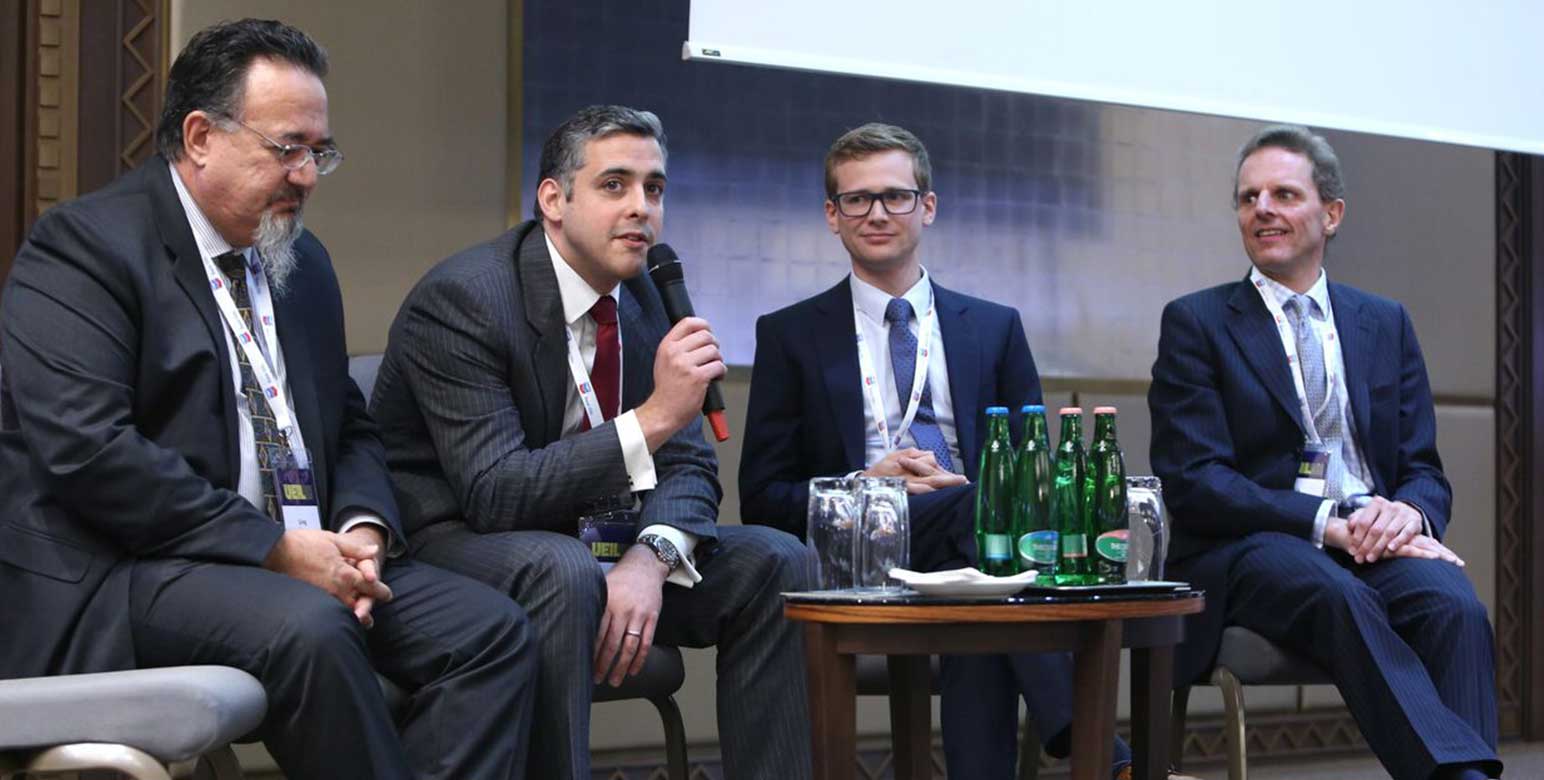
UEIL recap:13 insights for dealing with the talent shortage
This year I attended a very well organised, good-natured & friendly UEIL Congress in a special setting overlooking the River Danube in Budapest. Under the title of “embracing the future” delegates tackled some key industry hot topics of talent attraction, e-mobility, digitalisation and sustainability – subjects we certainly need to address now in order to have a profitable and productive future.
Here are some key learnings from the event:
1. Don’t forget about Generation X
With my thanks to the UEIL secretariat, I participated in a talk on talent and addressing the skills shortage we face. The talk mainly focused on the millennial generation, but a great comment from the floor by Shana McCabe of Ingevity reminded us that we shouldn’t neglect the Generation X that are here now, who are well qualified and still have 20 years to give to the sector. Her comment received huge applaud from the audience, which highlighted how true the sentiment was and it how much it resonated with the feeling of other Gen X delegates at the event.
2. We should be shouting about the progression opportunities
I think the Lubes sector has an exciting outlook for both Gen X and Millennials, with some fantastic career progression opportunities as a large proportion of the industry will enjoy retirement in 5 years. This offers a rate of career development that is very rare to other industries and highly attractive – a positive message which the industry can utilise to attract new talent.
3. We need better engagement with education
As many of delegates admitted they fell into the Lubes industry, a call for better education at schools and universities was made, to ensure we give young people a taste for the Lubricants sector and also teach them the relevant skills.
We discussed some good examples of how this could be achieved including:
Engaging with schools – i.e showing the application of lube technology and its impact on the world.
Offering apprenticeships, internships and work experience. This is a tried and tested method that works well, but surprisingly not everyone is doing it. We know companies like BP and Lubrizol partner with the Leeds University Tribology department, and Lube universities across Europe believe they are doing a good job preparing students, but the majority of UEIL audience felt differently. We need to communicate the needs of the industry better so the skills supply from university is capable of meeting the demand.
An interesting practical idea in how skills can be trained came from Holly from ILMA (Independent Lubricant Manufacturers Association), who gave an example of members funding university scholarships – something other associations could consider to boost interest in the sector.
4. The power of the combined trade associations
On a theme of collaboration for good, it was highlighted that the trade associations – ILMA, UEIL & ALMU – should continue to work together for a global best practice and reach, supporting members to help them get what they need. Associations have a key role to play on lobbying government and forging relationships with key support organisations. Again, effort should be made here through better communication between members and associations, both committing effort to a good working relationship. This will benefit employers and employees if lobbying is effective.

5. Adopt an abundance mindset
During the talk, the conversation seemed to focus heavily on the practicality of money and funding to support new talent attraction initiatives. Whilst we shouldn’t overlook a need to have money, we need to look at cause and effect. A truism is that money is an effect and action is the cause that creates the money effect, so if we take action money will begin to flow.
If we just sit and worry about the practicalities and all the things that could go wrong, adopting the “we can’t afford it” mindset, we will never take steps to address the problem.
Whilst you might not immediately reach the end goal if you take positive action to change you will at least get closer and make progress – getting you to a better place than before you started. Just look at the difference we have in the world from just 10, 20, 30 years ago – all around you you can see how resourceful humans adapt and thrive even when we start from a position of not having all the answers and capital.
6. Diversity doesn’t just stop at gender.
A focus point during the talk was the issue of diversity in the workplace. For many in this industry that seems to stop at balancing gender, in what people perceive to be male dominant industry. However, a key point I want to make here is that improving diversity isn’t just about ensuring we have more talented women in the industry, but that we’re also hiring people of different ethnicities and backgrounds too. Companies need to be communicating this when recruiting so that they gain access to a wider and impressive talent pool, who hold new perspectives and bring new ideas. The use of AI in recruitment technology is showing some good results in cutting out discrimination or confirmation bias – hiring people on a much more facts-based approach so we get the best people for the job.
7. Sell the sector in a way that speaks to a new generation
I’m a big believer in the law of attraction – if you use excuses like ‘the industry just isn’t exciting’ as a reason for your recruitment issues, then you’ll never get any closer to attracting new talent.
Instead, you have to get more enthusiastic and creative about what the industry can offer.
Some good selling points of the industry include:
• How lubricants keep the world moving – and making its role relevant in the world with real-life applications and projects that are making a positive difference.
• How the industry can make it a greener, more efficient and a better environment and world for all.
• How it innovates and regularly steps up to challenges and wins.
8. Sell your company in a way that speaks to a new generation
It’s not just about selling the lubricants sector as a whole, you also need to get across what your company itself can bring to the table for new recruits.
Create a compelling vision, and tell the story of why your company is a great place to work – ensuring communication is done on channels where your target audience is going to see your message.
Ideas for selling your company include:
• Selling the lifestyle the job brings. At a recent engineer recruitment event that UEIL moderator Steffen Bots of Lubeserv attended, he heard about the Siemens recruitment message “life is better on the beach” – used as part of their effort to relocate 1,000 new engineers to a Siemen’s factory to a coastal location.
• Promoting your corporate social responsibility practices. We know from research sustainability and corporate social responsibility resonates with a younger crowd – A 2016 study showed that 64% of millennials won’t even take a job from a company that doesn’t have strong CSR practices.
• Making your mission relevant and relatable by using real-world application examples to show the exciting work you do. Social media is a great platform for this – it’s cost-effective and with the application of time and investment in proper marketing expertise you can be very effective in delivering your attractive message to the world. Here’s a great example below of Shell doing exactly this on Twitter with their Generation Discover campaign:
Whilst each company is different, it’s a good idea to look at what other companies are doing to sell themselves to employees. Greg Croce – brand technical manager at Chevron – shared great insight on what a rounded and exciting career you can get at Chevron, with opportunities across multiple disciplines as well as the opportunity to specialise in a field if you wish.
SME and independently owned companies can learn from this by first working out what makes them a good place to work (staff surveys and research will give you the answer if you don’t know already), and then get that message out to the audience – which will attract suitable, qualified and interested talent.
9. Culture should not be a one size fits all approach
When discussing culture fit, Peter Vickers from Vickers Oils raised a good point on how one size doesn’t fit all. Companies need to be thinking about what they stand for and what their values are, then communicate this message so that people with aligned values will come to you.
Remember you don’t have to appeal to everyone, just the right people who will help your business to grow.
10. We shouldn’t forget about employee accountability
Jasper Smets, Product Manager at Chevron, also raised the importance of accountability on the employee to make sure they’re developing their skills to be an attractive and qualified hire.
So what can you do to develop yourself as a good staff member? You could volunteer at industry organisations, take a business class outside of your working day, or even ask to be mentored.
This accountability idea, in my view, will also help retain your staff because they are engaged and have the 3 key elements of motivation; autonomy, mastery and purpose.
11. Accept that employees are leaving sooner and focus on making them perform better, faster.
We know that retention is key to profitability but this will become harder to achieve. The market reality is that young people change jobs faster than older generations – requiring a new experience every 3-5 years. In some other markets (like the Far East) it’s even common to see employees change jobs every 2 years for that new experience.
Whilst the market is going this way, we can’t fight and win all the time. So instead, we should accept people are more mobile and invest in better training and development so employees perform better, sooner.
Mentoring is a great way to foster development and something that the industry has a readily available source of – with many senior elder staff in a position to impart 25+ years of knowledge to new market entrants. See our recent article on strategies for being a great mentor.
12. The industry can’t afford to make bad hiring decisions
Another key factor to retention is simply hiring right in the first place. The cost for doing it wrong is calculated at approx 3 times the bad hire’s salary when you factor in training, commercial downtime and missed opportunity cost. On top of this, there’s the effect on team morale with a negative personality influence, which may have even resulted in you losing good people who didn’t want to work with this bad hire.
Some strategies for avoiding a bad hire include giving a clear and agreed brief and using a platform to assess talent consistently (like our own I-intro). See more ideas in our red flags to look out for to avoid a bad hire article.
13. Leverage the power of AI & tech to fill some of the gaps
Speaking with some lubricant blenders, they saw blue-collar workforce costs increase by 20% in the last year because demand outstripped supply. This is where AI, automation and embracing technology could be interesting, with some compelling cases for greater productivity and less reliance in human input. For example, we’ve seen Moove Lubricants make automation investments in a UK plant to help reduce waste and bolster their productivity.
With technology, e-mobility and a new ledger of trust in the blockchain which could verify product quality, there is much to look forward to and discuss in terms of AI and tech (keep an eye out for a follow-up post on this!).
Final thoughts
I finish with a call to action – I believe we now accept as a lubricant industry that there is a talent shortage problem. Finally, after many years of me and others talking about it, the market has accepted there’s an issue. Whilst it’s good that we now know this, we must act on this knowledge – as nothing will change if we don’t.
Act now, to avoid the problems of the future.
I hope this article and my talk (for those who attended) have provided some actionable and practical points, but please contact the ABN Resource team for any further insight. ABN Resource are an experienced lubricant recruitment agency who can help you with your search for hard to find talent or on finding your next career opportunity.


